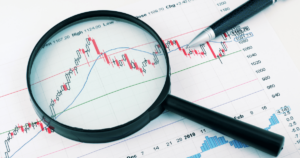Introduction
The foreign exchange (forex) market is a global marketplace where currencies are traded. Unlike traditional stock markets, the forex market operates 24 hours a day, five days a week. This article aims to provide a comprehensive understanding of forex trading hours and how they can impact your trading strategies and profitability.
The 24-Hour Forex Market
The forex market is open around the clock from Monday morning in New Zealand until Friday evening in New York. This continuous operation allows traders from all over the world to participate at any time, regardless of their time zone. It’s important to note that while the market is open 24 hours a day, not all trading sessions are equal in terms of activity and liquidity.
Major Forex Trading Sessions
Forex trading sessions refer to specific time periods during the day when trading activity is concentrated in a particular region. The major trading sessions include:
1. Asian Session
The Asian session begins with the opening of the Tokyo market. This session is characterized by the participation of major financial centers like Tokyo, Singapore, and Hong Kong. The Asian session is known for its focus on economic fundamentals, making it attractive for traders who employ fundamental analysis strategies. Notably, currency pairs involving the Japanese yen, such as USD/JPY and EUR/JPY, tend to be more active during this session.
2. European Session
The European session is the most active and liquid trading session. It starts with the opening of the London market, which is considered the forex capital of the world. London’s geographical positioning allows it to overlap with both the Asian and American sessions, resulting in increased trading volumes. During this session, major currency pairs like EUR/USD and GBP/USD exhibit heightened volatility. Economic data releases from the European Union and the United Kingdom often occur during this session, leading to significant price movements.
3. North American Session
The North American session begins with the opening of the New York market. This session overlaps with the European session, creating a period of high trading activity. The participation of major financial centers like New York, Toronto, and Chicago makes it a crucial session for forex traders. Currency pairs involving the U.S. dollar, such as USD/CAD and USD/CHF, often experience increased volatility during this session. Important economic data releases from the United States frequently impact the market during this time.
Key Trading Hours Overlaps
One of the most important aspects of forex trading hours is the overlap between different trading sessions. These overlaps are periods when multiple sessions are active simultaneously, leading to increased liquidity and potential trading opportunities. The key trading hours overlaps include:
1. London and New York Overlap
The overlap between the London and New York sessions is considered the most active period in forex trading. It occurs from 8:00 am to 5:00 pm local time. During this time, traders can take advantage of high liquidity and increased volatility, particularly in major currency pairs involving the U.S. dollar. Many trend movements originate during this overlap, providing opportunities for traders to enter or exit positions.
2. Asian and European Overlap
The overlap between the Asian and European sessions takes place when the Tokyo and London markets are both open. This overlap occurs from 7:00 am to 9:00 am GMT. While not as volatile as the London-New York overlap, it still offers significant trading opportunities, especially for currency pairs involving the yen and the euro.
3. Asian and North American Overlap
The overlap between the Asian and North American sessions happens when the Tokyo and New York markets are active. This overlap occurs from 12:00 pm to 4:00 pm GMT. Although the trading volume may be lower compared to the London-New York overlap, it can still provide opportunities for traders, particularly in currency pairs involving the U.S. dollar and the yen.
Factors Affecting Forex Trading Hours
While the forex market generally operates 24 hours a day, there are factors that can affect trading hours and market activity. These include:
1. Daylight Savings Time
Daylight Savings Time (DST) is a seasonal adjustment observed in some countries. When DST is in effect, it can cause temporary disruptions to the usual trading hours, as different regions may shift their time zones. Traders need to stay updated on DST changes to ensure they are aware of any shifts in market opening and closing times.
2. Public Holidays
Public holidays in different countries can impact forex trading hours and market liquidity. During holidays, certain financial centers may be closed, leading to reduced trading activity in the associated currencies. It’s essential for traders to be aware of upcoming public holidays, especially in major economies, as they can influence market conditions.
3. Seasonality
Seasonal trends can also affect forex trading hours. Market participants may exhibit different behaviors and trading volumes during different times of the year. For example, the summer months are often characterized by lower trading volumes and relatively quieter pricemovements, as many traders take vacations. On the other hand, the end of the year may see increased volatility as traders adjust their positions ahead of the holiday season.
Optimizing Trading Strategies Based on Forex Trading Hours
Understanding forex trading hours and the characteristics of different trading sessions can significantly impact your trading strategies and potential profitability. Here are some key considerations:
1. Volatility and Trading Style
Different trading sessions exhibit varying levels of volatility. If you prefer high-volatility trading, focusing on the London-New York overlap may be beneficial. On the other hand, if you prefer more stable and less volatile market conditions, trading during quieter sessions or overlaps may be more suitable.
2. Currency Pair Selection
Forex trading hours also influence the liquidity and volatility of specific currency pairs. For instance, during the Asian session, currency pairs involving the yen tend to be more active. Understanding which currency pairs are most affected during different trading sessions allows you to select pairs that align with your trading strategy and preferences.
3. Economic Calendar Awareness
Being aware of the economic calendar and scheduled news releases is critical. Major economic data releases, such as employment reports or central bank announcements, can significantly impact currency prices. Adjust your trading strategy to consider these events and their timing during specific trading sessions.
4. Time Zone Considerations
Your geographical location and time zone can influence your ability to trade during specific sessions. Assess the trading hours that align with your availability and develop a strategy that accommodates your schedule. If you cannot actively trade during certain sessions, consider using limit orders or automated trading systems to execute trades on your behalf.
Common Queries About Forex Trading Hours
1. Can I trade forex outside of trading hours?
While the forex market operates 24 hours a day, trading activity and liquidity may vary depending on the trading session. It’s important to note that during periods of low trading volume, spreads may widen, and price movements may be limited. However, there are alternative market options available outside regular forex trading hours, such as trading cryptocurrencies or other instruments with extended trading hours.
2. How do I convert forex trading hours to my local time?
Converting forex trading hours to your local time is crucial for effective trading. Several websites and tools provide real-time information on global trading sessions and their corresponding local times. You can use online converters or set up your trading platform to display time zones according to your location.
3. Are there strategies specifically designed for each trading session?
While there are no strict rules regarding strategies for specific trading sessions, different sessions do have distinct characteristics that can be considered when developing trading strategies. For example, fundamental analysis may be more applicable during the Asian session, while technical analysis methods could be more suitable during the London or New York sessions. Ultimately, the choice of strategy depends on your trading style, preferences, and the market conditions.
4. How do daylight savings time changes affect forex trading?
Daylight Savings Time changes can impact forex trading hours, as they may result in shifts in market opening and closing times. Traders should stay informed about DST changes in the relevant countries and adjust their trading schedules accordingly. Most trading platforms and brokers automatically adjust their trading hours to reflect DST changes.
Key Takeaways
- The forex market operates 24 hours a day, five days a week, allowing traders worldwide to participate at any time.
- Major trading sessions include the Asian, European, and North American sessions, each with its own characteristics and currency pair preferences.
- Trading session overlaps, such as the London-New York overlap, offer increased liquidity and trading opportunities.
- Factors like Daylight Savings Time, public holidays, and seasonality can influence forex trading hours and market activity.
- Optimizing trading strategies based on forex trading hours involves considering volatility, currency pair selection, economic calendar events, and personal time zone considerations.
Understanding and leveraging the nuances of forex trading hours can enhance your trading experience and potentially improve profitability. By aligning your trading strategies with the most active and liquid trading sessions, you can increase your chances of success in the dynamic forex market. Stay informed, adapt to changing market conditions, and continually refine your approach to maximize your profit potential.








